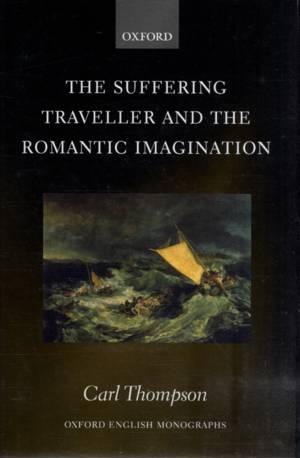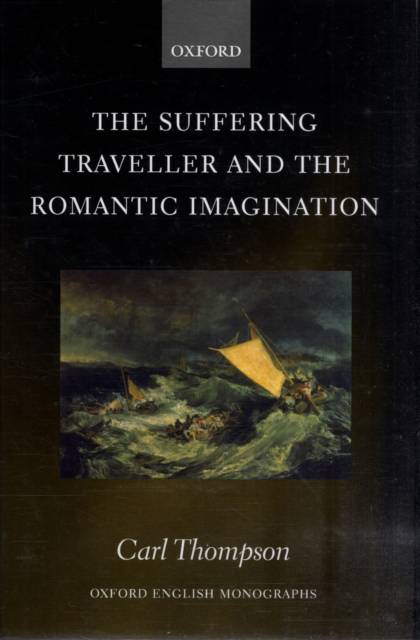
- Retrait gratuit dans votre magasin Club
- 7.000.000 titres dans notre catalogue
- Payer en toute sécurité
- Toujours un magasin près de chez vous
- Retrait gratuit dans votre magasin Club
- 7.000.0000 titres dans notre catalogue
- Payer en toute sécurité
- Toujours un magasin près de chez vous
Description
Carl Thompson explores the romance that can attach to the notion of suffering in travel, and the importance of the persona of 'suffering traveller' in the Romantic self-fashionings of figures such as Wordsworth and Byron. Situating such self-fashionings in the context of the upsurge of tourism in the late eighteenth century, he shows how the Romantics sought to differentiate themselves from mere tourists by following alternative models, and alternative travel 'scripts', in both their travelling and their travel writing. In a rejection of the more conventional roles of picturesque tourist and Grand Tourist, Romantic travellers often preferred to style themselves as heroic explorers, oppressed and endangered mariners, even shipwreck victims. The Suffering Traveller and the Romantic Imagination accordingly returns to the sub-genres of Romantic-era travel writing - the shipwreck narrative, the exploration narrative, the captivity narrative, and the like - that first kindled the Romantic fascination with these figures, to consider the travel scripts seemingly enabled by this source material. Paying particular attention to the narratives of shipwreck and maritime suffering that were a hugely popular part of Romantic-era print culture, and to the equally popular narrative of exploration, the book considers firstly the examples, traditions, and conventions that trained Romantic travellers to think that misadventure as much as adventure could be a route to visionary experience and literary authority. It then explores the political resonance that the figure of the suffering traveller could possess in this Revolutionary era, before treating Wordsworth and Byron as especially influential examples of the 'misadventurous' tendency in Romanticism. In so doing, The Suffering Traveller and the Romantic Imagination offers interesting new perspectives not only on British Romanticism and on travel writing of the Romantic era, but also on many attitudes, practices, and typologies still current in travel and tourism.
Spécifications
Parties prenantes
- Auteur(s) :
- Editeur:
Contenu
- Nombre de pages :
- 312
- Langue:
- Anglais
- Collection :
Caractéristiques
- EAN:
- 9780199259984
- Date de parution :
- 26-07-07
- Format:
- Livre relié
- Format numérique:
- Genaaid
- Dimensions :
- 140 mm x 216 mm
- Poids :
- 544 g

Les avis
Nous publions uniquement les avis qui respectent les conditions requises. Consultez nos conditions pour les avis.






